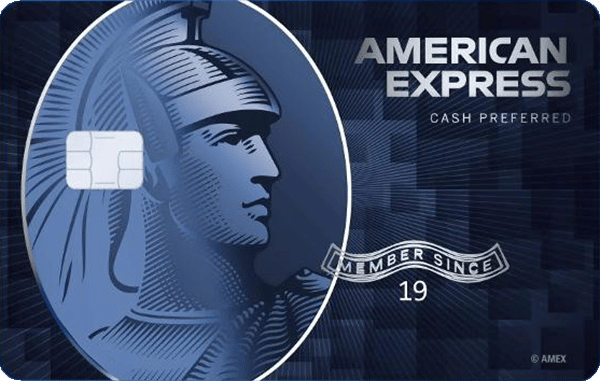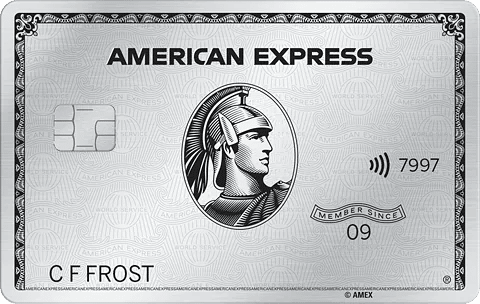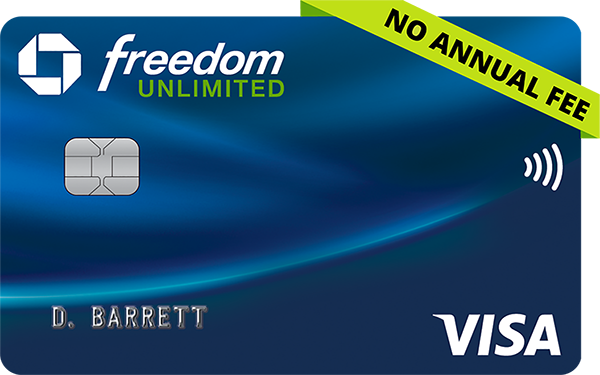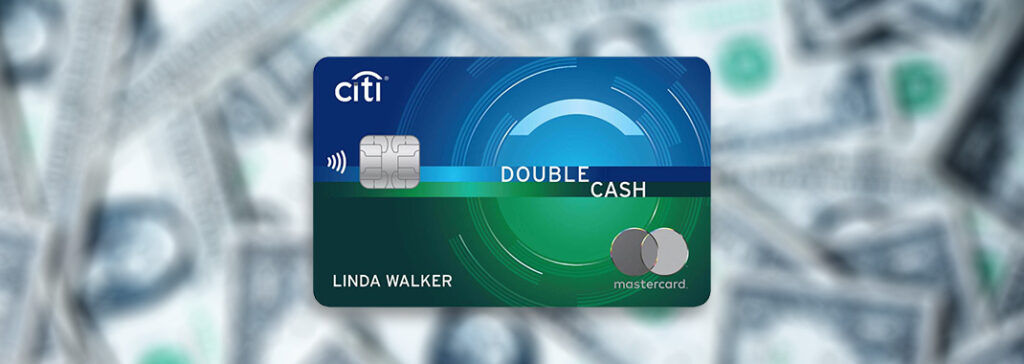Most products on this page are from partners who may compensate us. This may influence which products we write about and where and how they appear on the page. However, opinions expressed here are the author's alone, not those of any bank, credit card issuer, airline or hotel chain. This page may include information about American Express products currently unavailable on Slickdeals. American Express is not a partner of Slickdeals.
When couples use credit cards strategically for a common goal, they can earn valuable rewards, such as extra cash or free flights and hotel stays, all without deviating from their normal spending routine. Couples who want to earn cash back or valuable travel rewards can work on these goals together by applying for separate cards or adding each other as authorized users on individual credit card accounts to earn double the rewards at double the rate.
Before developing a credit card strategy with your partner, make sure you have a clear understanding of each other's spending habits, budgeting needs and other financial obligations. If you and your partner are on the same page with your credit card habits and goals, here are the best credit cards that can help couples maximize rewards and perks.
4 Best Credit Cards for Couples
Here’s a closer at some of the best credit cards for couples.
- Best for Stay-at-Home Couples: The Blue Cash Preferred® Card from American Express
- Best for Travelers: Chase Sapphire Preferred®
- Best for Luxury Perks: The Platinum Card® from American Express
- Best for Parents: Chase Freedom Unlimited®
The Blue Cash Preferred® Card from American Express
- Our Rating 4.5/5 How our ratings work
- APR18.99% - 29.99% (Variable)
- Annual Fee$95
$0 Intro annual fee for the first year, then $95
-
Welcome Bonus
$250Cash Bonus
Earn a welcome bonus of $250 (statement credit) once they spend $3,000 with the card during their first six months of card membership
This card earns generous cash back at U.S. supermarkets and gas stations and on select streaming services, potentially making it an excellent fit for households with big grocery and transportation costs.
Overview
It’s rare for a cash-back credit card to charge an annual fee, but it’s even more unexpected to earn a whopping 6% cash back at U.S. supermarkets and with select streaming services. This credit card may also be ideal for families who spend a lot of time commuting around the city and who also have multiple U.S. streaming subscriptions. The Blue Cash Preferred® Card from American Express is designed to help busy households maximize their cash-back earnings.
Pros
- An extensive array of category bonuses including up to 6% back at U.S. supermarkets
- $0 annual fee the first year, then $95
- An array of purchase and travel protections
Cons
- Rewards are earned as pure cash back with no ability to transfer to Amex's travel partners
- There's an annual fee after the first year
Best for: Couples who prefer to spend their time with a home-cooked meal and can take advantage of this card’s high earning rates in categories like groceries and streaming.
Rewards:
- 6% back at U.S. supermarkets, up to $6,000 each calendar year (then 1%)
- 6% back on select U.S. streaming services
- 3% back on fuel at U.S. gas stations
- 3% on transit expenses, including parking, tolls, bus fare and more
- All other eligible spending earns 1% cash back
This card offers high cash-back returns if you and your partner spend the bulk of your money on groceries, transportation and streaming services like Netflix and YouTube TV. Best of all, there is no fee to add authorized users, such as your significant other, who can help you meet the initial welcome bonus requirements and earn ongoing cash back.
This card is ideal for couples who commute, prepare the majority of their meals at home, and stream their favorite TV shows and movies.
Chase Sapphire Preferred® Card
- Our Rating 5/5 How our ratings work
- APR19.99% - 28.24% (Variable)
- Annual Fee$95
-
Sign Up Bonus
75,000Chase Ultimate Rewards Points
Earn 75,000 bonus points after you spend $5,000 on purchases in the first 3 months from account opening. Dollar Equivalent: $1,650 (75,000 Chase Ultimate Rewards Points * 0.022 base)
The Chase Sapphire Preferred Card is one of the gold standards for earning travel rewards. It has a generous sign-up bonus and you can earn points on travel and dining expenses. The card does have an annual fee, but you can continue earning points through bonus categories and an anniversary points boost.
Overview
The Chase Sapphire Preferred is pretty flexible as it lets you transfer rewards points into miles or points several airlines and hotel programs. You can take advantage of strong transfer partners such as United, Southwest, Singapore Airlines, Virgin Atlantic and Hyatt. Similarly, you can book any reservation you want through the Chase Travel℠ portal. Although the card might not be ideal for the most frequent travelers, it has a built-in upgrade path, so when it’s time to level up your travel rewards game, you won’t have to start from scratch.
Pros
- Points are easily transferable to airlines and hotel partners
- Accelerated earnings on dining, travel & household purchases
- Excellent travel and purchase protections
- No foreign transaction fees
Cons
- Not ideal for the highest spenders
- $95 annual fee
Best for: Spouses who love traveling together (and pooling rewards).
The card offers high earning rates on travel purchased through Chase Ultimate Rewards®, travel protections, and a long list of transfer partners. For couples who are new to travel rewards cards, the Chase Sapphire Preferred® card is a fantastic choice. This card earns Chase Ultimate Rewards® points, which is considered to be among the best travel rewards programs today.
Rewards:
- 5x on travel purchased through Chase Ultimate Rewards®
- 3x on dining
- 2x on all other travel purchases
One of the advantages of the Chase Ultimate Rewards card network for couples is that Chase allows partners living in the same household to pool their points across accounts. This makes the Chase Sapphire Preferred card a fantastic choice for couples who want to earn a large number of points and use them for future travel.
Even better, if your partner has a card that earns cash back, such as the no-annual-fee Chase Freedom Flex℠ card, they can transfer the cash back to your Chase Sapphire Preferred card account, where it is converted into travel rewards that you can redeem for flights, hotels and more.
The Platinum Card® from American Express
- Our Rating 4.5/5 How our ratings work
- APRSee Pay Over Time APR
- Annual Fee$695
-
Welcome Bonus
80,000Membership Rewards Points
bonus_miles_full Dollar Equivalent: $1,520 (80,000 Membership Rewards Points * .019 base)
Cardholders have access to credits for hotels, digital entertainment, Walmart+, airline fees and more. Those who can use enough credits can offset the hefty annual fee, but otherwise, the value may be out of reach. Enrollment is required for select benefits.
Overview
The American Express Platinum Card isn’t a standout when it comes to rewards rates, but if you’re looking for a card that can elevate your travel experience and provide you with solid monthly lifestyle benefits, this one should be on your radar.
Pros
- An excellent card for premium travel and lifestyle perks
- Access to American Express Centurion Lounges, Delta Sky Clubs (when flying Delta), Priority Pass lounges and more
- More than $1,500 in statement credits, from hotels, Uber, CLEAR, digital entertainment and more
- 5x points on flights and prepaid hotels
- Automatic Gold elite status with Hilton Honors and Marriott Bonvoy hotel programs
Cons
- Very high annual fee
- "Use it or lose it" benefits, as statement credits don't roll over
- Long list of coupon-like perks may be hard to keep track of
Best for: Partners who want to travel in style.
There is a lot to love here, with access to multiple airport lounges, elite status in two hotel loyalty programs, and a host of statement credits and perks to help you travel comfortably. If you and your loved one are serious about boosting your travel experiences, this card is a must-have travel companion.
Rewards:
- 5x points on flights booked directly with airlines or through American Express Travel®, on up to $500,000 on these purchases per calendar year
- 5X points on Prepaid Hotels booked on AmexTravel.com
- 1x points on other purchases
Here are a few of the annual perks that could easily benefit couples who live for luxury:
- $200 hotel credit: Prepaid bookings with select hotels
- $200 airline fee credit: Benefit can be applied to one selected airline
- $200 Uber Cash: Receive $15 monthly benefit for rideshares and meal delivery
- $300 Equinox credit: Get up to $300 in credits each calendar year when you use your Amex Platinum to pay for the Equinox+ digital fitness app, or eligible Equinox club memberships.
- $100 Saks Fifth Avenue credit: $50 benefit between January and June and then again between July through December
This card allows you to add up to three authorized users for $175 per year. Although $175 is still an expensive sum for an authorized user account, it may be well worth it since authorized users also receive top travel benefits such as Hilton and Marriott elite status, $189 in CLEAR® credit, a credit for the application fee for Global Entry or TSA PreCheck® and lounge access.
Chase Freedom Unlimited®
- Our Rating 4.5/5 How our ratings work
- APR18.99% - 28.49% (Variable)
- Annual Fee$0
-
Sign Up Bonus
$200Cash Bonus
Intro Offer: Earn a $200 Bonus after you spend $500 on purchases in your first 3 months from account opening
We like that the card offers a high flat rewards rate but also provides accelerated rewards on some common everyday spending categories. You’ll also get access to the Chase TravelSM portal, which allows you to use your cash-back earnings for travel rewards, gift cards and more. If you make this your primary card for most purchases you can quickly rack up a lot of rewards.
Overview
The Chase Freedom Unlimited card is unique for a couple of reasons. First, it comes with purchase protection and extended warranty protection you don’t see with some other cash-back cards. Second, you earn cash back in the form of points and when paired with another annual-fee earning Chase product, you can get even more value if you love to travel by transferring to partners.
That’s because while the Freedom cards are marketed as cash-back credit cards, they actually offer points. You can use those points to book travel through Chase at a rate of 1 cent per point. But if you have the Chase Sapphire Preferred® or Chase Sapphire Reserve®, you’ll get 25% and 50% more value on those travel redemptions, respectively. (Plus, the ability to transfer your points, too.)
Pros
- No category bonuses to remember; earn at least 1.5% back on everything
- No annual fee
- Generous travel and purchase protection benefits
Cons
- Can't transfer Chase points unless paired with another annual-fee Chase product
Best for: Parents and everyday spending for kids.
This card offers high earning rates on dining, drugstore purchases and overall everyday spending. The generous rewards rate on travel also makes this an easy go-to card for family vacations.
Rewards:
- 5% cash back on Chase travel purchased through Ultimate Rewards®
- 3% cash back on drugstore purchases and dining at restaurants, including takeout and eligible delivery service
- 1.5% cash back on all other purchases
If a couple spends $1,500 on travel, for example, they will earn $75 cash back or 7,500 points (when transferring cash back to an Ultimate Rewards-earning card like the Chase Sapphire Preferred or Chase Sapphire Reserve®).
The card also comes with a 15-month introductory APR on purchases and balance transfers (after which the card's regular APR of 18.99% - 28.49% (Variable) applies), which might be handy for couples who need some wiggle room when making a significant purchase (like back-to-school shopping) or require help paying off credit card debt.
How to Get a Joint Credit Card
These days, getting a joint credit card usually means a primary cardholder adds someone else as an authorized user. If you already have a card you want to share with your spouse, you can usually add them as an authorized user via your online account or by calling the number on your card.
Tips for Using Credit Cards as a Couple
Here are some tips for managing a joint credit card:
- Make a spending plan before applying. Talk to your spouse about your budget, what type of charges you’re both comfortable making on the card, if you have spending limits and so on. This can help cut down on confusion, overspending, missed payments and other frustrations.
- Know who will pay the bill and when. The primary account holder is ultimately responsible for paying the bill, regardless of who racks up the charges, but knowing who is going to log in and pay the bill, set up autopay or otherwise manage the account can lessen confusion.
- Understand the credit impact. In most cases, both people’s credit can be affected with a joint card. This can be great if you pay all the bills on time because that can help one or both of you improve your credit score. But keep in mind that missed payments could lower your scores.
- Decide who should apply: If you and your spouse want to apply for a new card, you may want to have the person with the higher credit score apply because that typically improves your approval odds. But also review how many cards you both already have and when you last applied for credit so you can decide who should apply.
Pros and Cons of Having a Joint Credit Card
Pros
- Can improve credit
- Can earn more rewards
- Helps you share expenses
- Fewer bills to manage
Cons
- Primary account holder is financially responsible
- Could lower credit if bills aren't paid on time
- Might max out credit limit by accident
Pros of Having a Joint Credit Card
- Can improve credit: A joint credit card can improve both users’ credit as long as you regularly pay your bill in full and on time. Make sure you’re both only spending what you can afford to pay back each month and keep an eye on your card’s credit limit.
- Can earn more rewards: Having two people spending on a card can mean you’ll earn twice as many rewards, which can add up fast as long as you use a card with a rewards program that matches your spending habits.
- Helps you share expenses: A joint card makes sense for people who already share costs, and this way you can use one account to pay for communal things like groceries, monthly bills and gas. It also gives you both more transparency as you can check in on the card’s charges to make sure you’re not going over budget.
- Fewer bills to manage: A shared card means one less account to log in to and one less bill to find and pay each month, which can streamline some of your financial tasks and help you save time.
Cons of Having a Joint Credit Card
- Primary account holder is financially responsible: If your joint account is actually a credit card with an authorized user added, know that the primary cardholder is ultimately responsible for paying the bill, regardless of who uses the card. Communicate how you both intend to use the card so you aren’t surprised by a bill you can’t afford.
- Could lower either party’s credit if bills aren’t paid on time: If you end up struggling to cover the bill on your joint account because charges pop up from your spouse you weren’t expecting, both people could find their credit scores decrease.
- Could max out credit limit without realizing it: It’s also possible to accidentally go over your credit limit if you don’t check your statement regularly or ask your spouse how much they’ve charged, especially if your limit is on the lower end.
Should Couples Share a Credit Card?
Couples may want to share a credit card if they want to have some of their spending together on one card for easier tracking and bill pay. Sharing a credit card with your spouse can also help you earn more rewards you can use together, whether it’s toward airfare for a family vacation or just cash back for future grocery shopping. And if one person’s credit needs a boost, adding them as an authorized user can help their score increase as long as you pay the bills in full and on time.
Keep in mind that sharing a credit card may not work for people who prefer to keep their expenses separate or aren’t on the same page as their spouse about spending and bill pay—because it could be easy to accidentally go over the card’s spending limit or miss a bill due date.
FAQs
-
Yes, in most cases a joint credit card can build credit for both users, though some issuers don’t report card activity for the authorized user. Typically, if the card’s bill is regularly paid on time and in full, the card can increase credit scores for the primary cardholder and any associated authorized users. However, late and missed payments can ultimately decrease credit scores for users, too.
-
A couple should have as many credit cards as they can reasonably keep track of, especially when it comes to managing spending and paying the card bills. Consider factors like whether a card has an annual fee you can offset with rewards and perks, as well as how much having multiple cards could tempt you to overspend or forget to pay the bills on time. As long as you are tracking your spending and payments, having more than one card could help you maximize rewards and take advantage of other credit card perks.
-
Yes, an unmarried couple can get a credit card together by having one person add the other as an authorized user. You can add anyone as an authorized user, but make sure they are someone you trust because the primary cardholder is ultimately responsible for the bill, and unpaid charges will affect your credit, even if they are from the authorized user.












